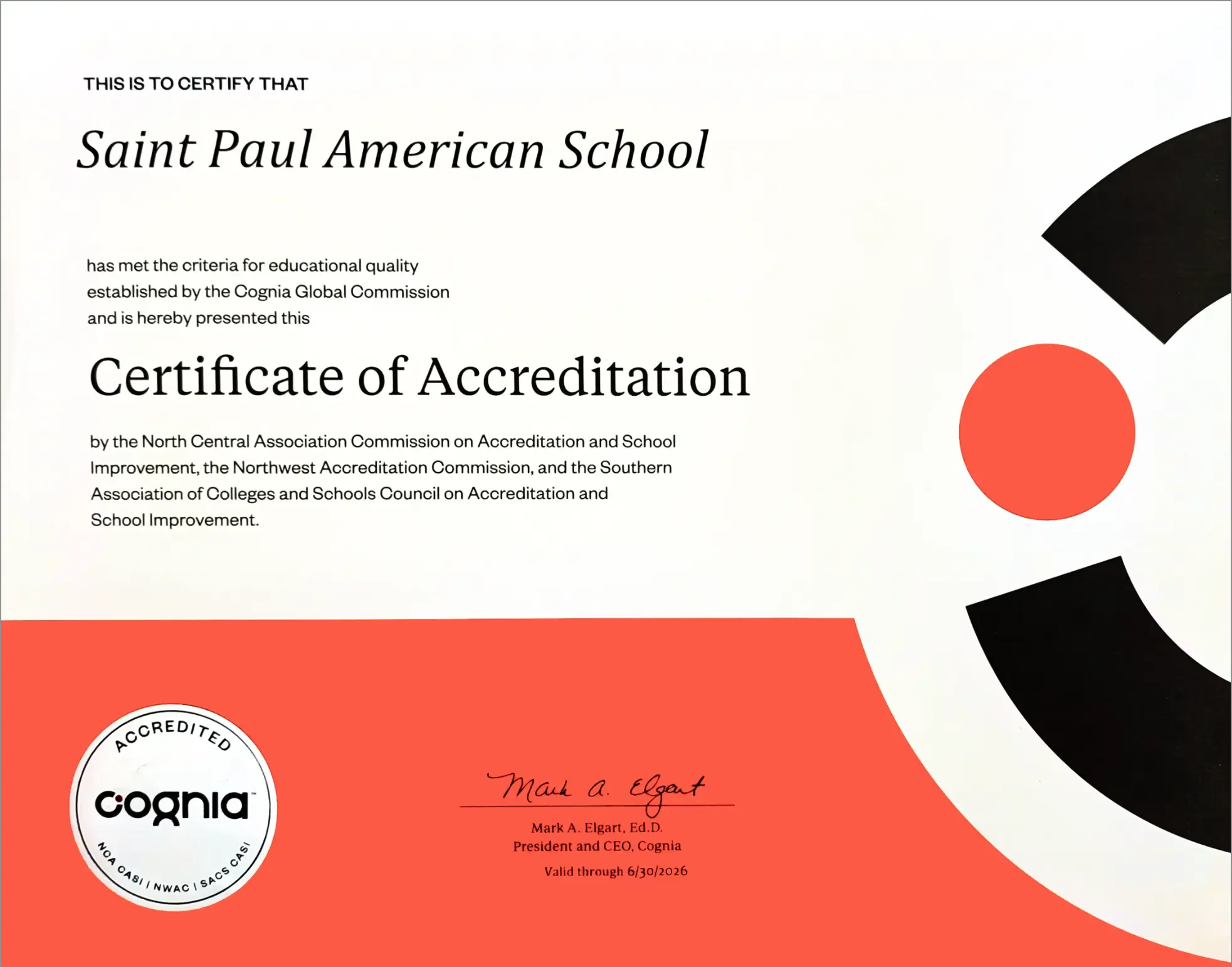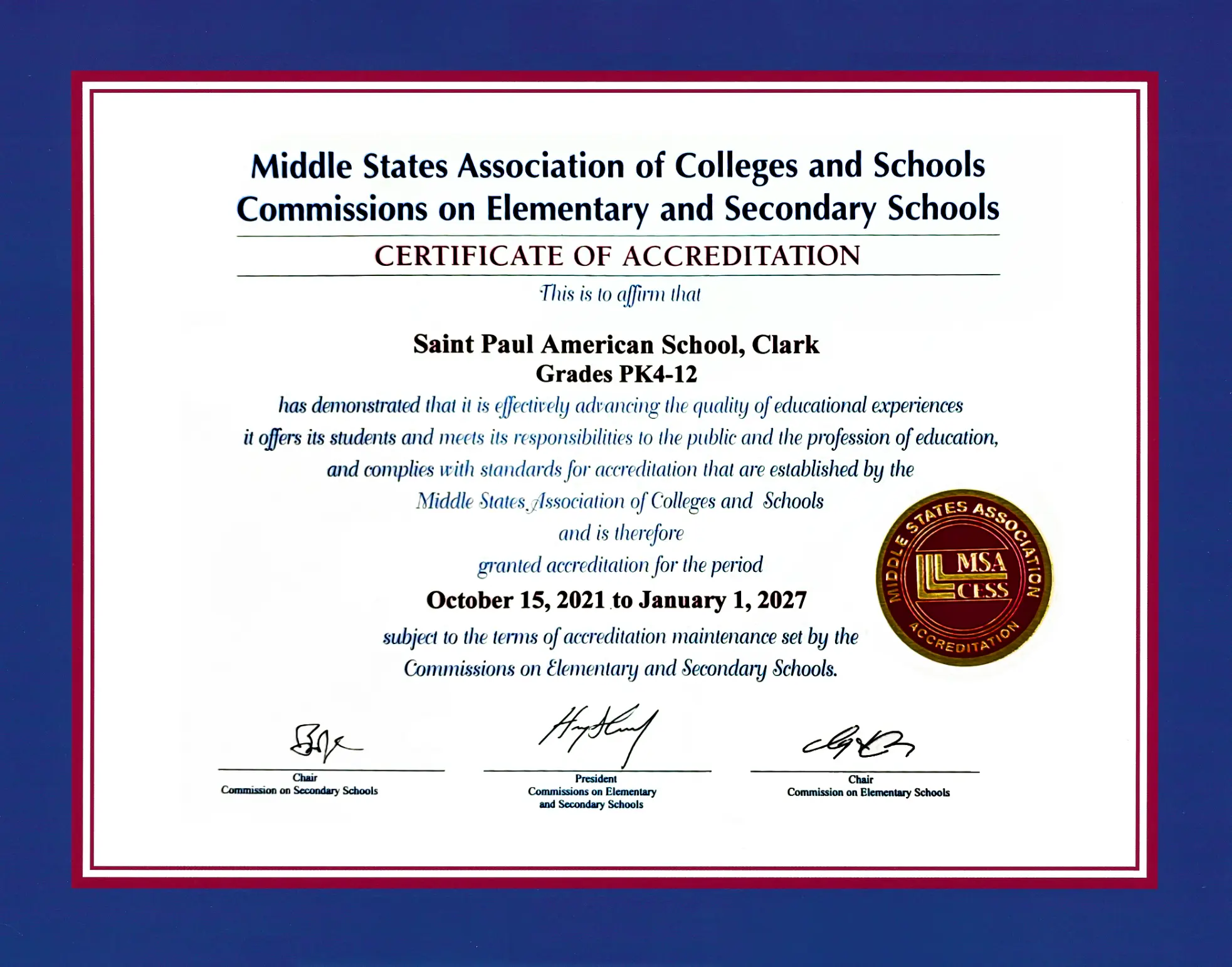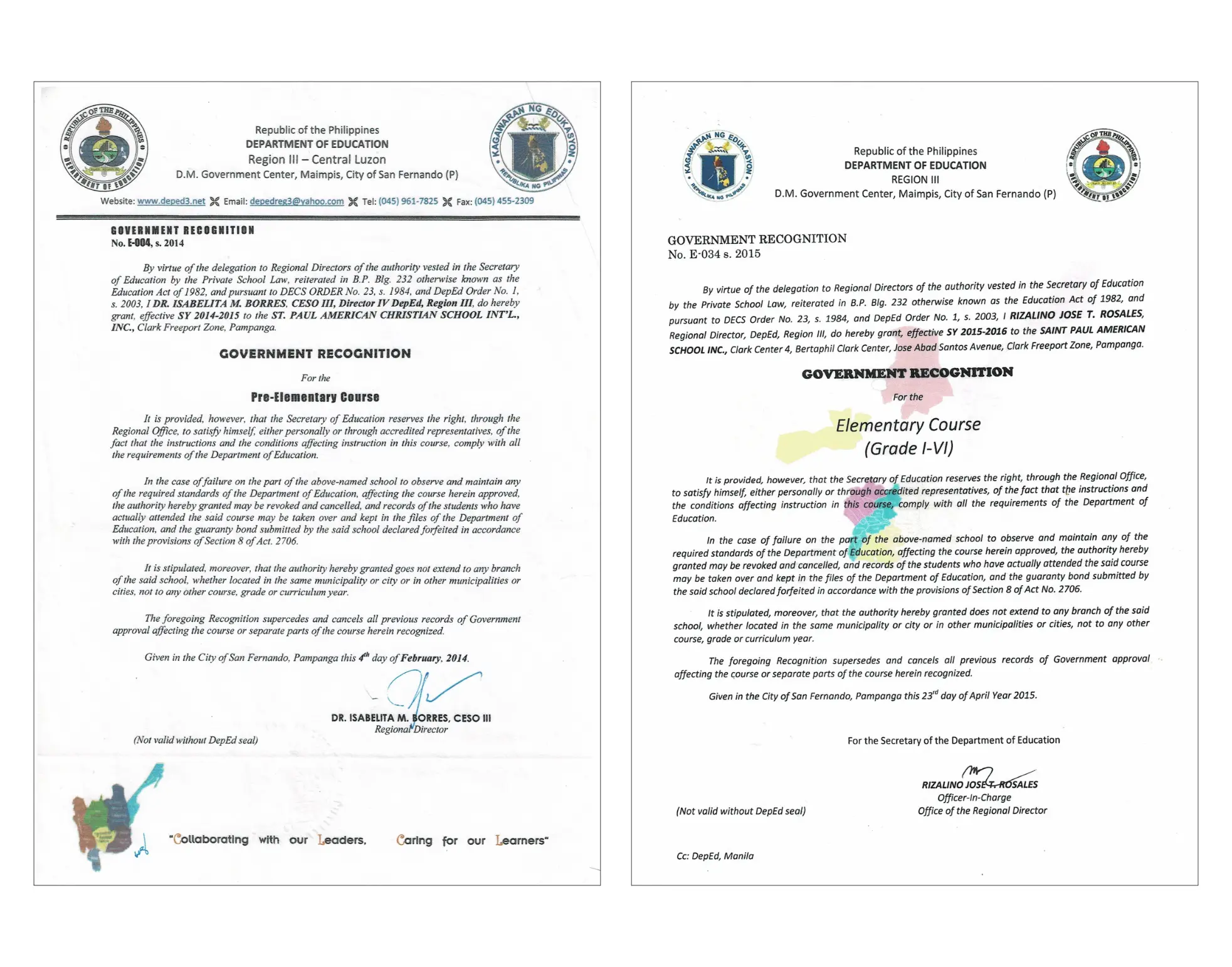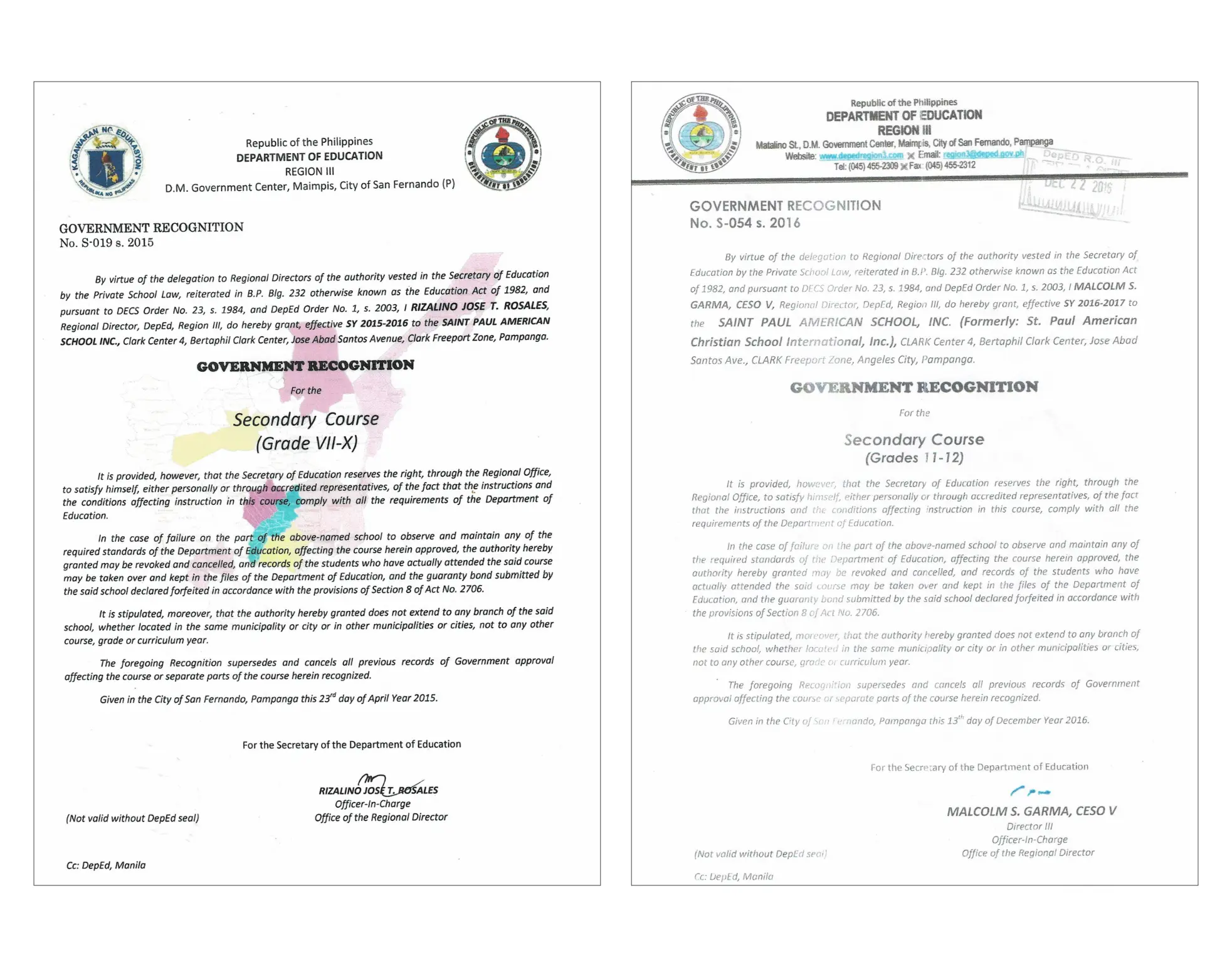FAQs
Is your diploma recognized in America?
Absolutely, as students receive dual diplomas from our school here in Clark as well as our main school* in academics in the United States. As a double accredited school by COGNIA and MSA, our diploma and curriculum meet the requirements of leading universities in the US and has already facilitated many recent graduates to be accepted by those universities.
(*UPDATE as of June 1, 2024: Saint Paul Preparatory School which was located in St. Paul, Minnesota had its operation restricted during Covid-19, therefore it has been in the process of transitioning to operate as an online school. From 2025, we will provide the dual diploma of Saint Paul American School System which has the Saint Paul Preparatory School as its sub-division. Saint Paul American School System is accredited by the Middle States Association of Colleges and Schools (MSA), which is one of the Regional Accreditation Agencies of USA.)




Are you an "international school"?
Our school is an "American" school, but international - due to the very diverse student body. The Saint Paul School Clark has American ways of management, faculty, curriculum, textbooks and the same teaching procedures/rules as our school in the United States. In that context, and also with the fact that all of its core subjects are taught by either American or local teachers, it's an American school and not an international school which may have mixed curriculums and teachers from many different countries.
Where are your teachers from?
Except for language courses like Spanish and Mandarin, our teachers are from the United States and Philippines.
Is there an admissions test?
We run a placement interview to test English skills of your child in order to properly place them in our academic schedule.
My child can't speak much English. Can you accept him and how long will it take for him to learn English?
We see young students become proficient in English within 18-24 months and are able to begin basic usage within 6 months - of course depending on the student. After assessments, students will be assigned to the appropriate ESL classes in regular class schedule. For students who need more support in ESL and specific subject(s), we are running up to two hours of additional ESL and subject tutoring after regular classes, which are free of any charges.
Have you had any graduates who have been accepted by American universities? Can my child apply to universities around the world?
Recent graduates have been accepted to many colleges and universities in the United States, as well as around the world and here in the Philippines. High school students receive college counseling and assistance from the school to choose and apply to their desired universities.
How can my child get to school?
We offer, as an option, door to door, chaperoned bus service.
Do you have a uniform?
The school, in order to foster consistency and discipline, as well as to curtail fashion controversies, does require students to wear the school uniform.
Does your school have at PTA (Parent Teacher Association)?
Yes, Saint Paul American School values the advice and counsel of our stakeholders, the parents, and we periodically have meetings of parents, teachers and school administration.
Do you allow any trial session or sit-in experience?
Yes, students are welcome to do a "sit-in" for one or two days with no obligation or fees.
What curriculum do you use?
As an American school, our curriculum aligns with state/national standards, such as the Common Core State Standards (CCSS) for English Language Arts and Mathematics, Next Generation Science Standards (NGSS) for science and American Education Reaches Out (AERO) for Social Studies.
Where are the students from?
So far we are privileged to welcome students from many nations including the USA, United Kingdom, China, Costa Rica, Australia, Russia, Taiwan, India, Japan, Mongolia, Myanmar, Spain, Vietnam, Papua New Guinea, Iraqi.
What are the visa requirements?
In the Philippines, K-12 students require a Special Study Permit, if they are not residents or citizens of the Philippines. Many students can derive status, and not need a Special Study Permit, through their parents if they have a working visa or investor's visa.
What is the day schedule of students?
Students attend classes from 8am to 3pm and 3pm to 4pm are comprised of various activities. Pre-K and Kindergarten students attend school from 9am to 2pm.
